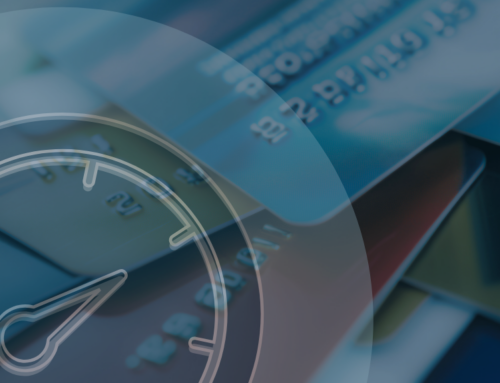
With the holidays around the corner, putting the cost of your full Thanksgiving dinner and Christmas presents on a credit card can be tempting. After all, with the price of everyday items going on, using a credit card can feel like free money.
We know that using a credit card the wrong way can have a lasting effect on your credit score and your ability to borrow money for the things that matter most, like purchasing your first home. But that doesn’t mean you should avoid using credit cards altogether. When used correctly, credit cards can be a financial tool that can actually boost your credit score. Here’s how to put your credit card to work for you.
Use Credit Cards to Your Advantage
The best way to use a credit card to your advantage is to never pay interest to the credit card company. So ideally you will want to pay off the full balance every single month. The key is to use your credit card as a financial tool and not a financial crutch.
Save the money in your bank account that you would normally use for everyday expenses and use your credit card for these items. Then at the end of the billing cycle, pay the balance in full from the money in your account. When using this strategy keep the following in mind:
- Never put more on your card than you can afford to pay off each month. Once interest starts compounding on credit card debt you will end up spending a significant amount of interest.
- Never use a cash advance. Cash advances may seem tempting, but that feature typically holds the highest interest rates attached to them.
- Make payments on time. Missing a payment can have lasting effects on your credit score. Delinquent payments can negatively impact your credit score for up to 7 years!
Why Use my Credit Card if I Don’t Have To?
Choosing whether or not to use your credit card is a personal decision. If you know that you tend to overspend and don’t think you can keep your balance low, then you might be better off keeping your card for emergencies only. However, using your cards responsibly on a regular basis can actually boost your credit score. This is because you are demonstrating the ability to borrow money and pay it back on time.
A common mistake people make is paying off their credit cards and then avoiding them like the plague. Or they close the account altogether. Here’s what to do instead:
- Pay attention to your credit utilization ratio, or the percentage of available credit used. It’s best to pay off your credit card monthly, but if you keep a balance, avoid spending more than 30% of your credit utilization ratio.
- Don’t let your card collect dust. If your goal is to improve your credit score and keep your debt-to-income ratio low, simply opening a credit card and not using it isn’t going to do much. Being mindful of your spending habits and paying off the balance on your card monthly can help boost your score.
- Don’t close your account after paying off the balance. This can actually harm your credit score because it increases your credit utilization ratio.
Be Strategic When Choosing Your Credit Card
Not all credit cards are created equally. That’s why it’s important to be strategic when choosing your credit card. When shopping for a credit card, remember that applications require hard pulls on your credit score. Avoid applying for every card offer you get and do your research. Make sure you:
- Read the fine print about the interest rate and potential fees associated with the card.
- Avoid cards with an annual fee. Even if the rewards program sounds promising, a yearly fee can quickly add up and outweigh the benefit of the rewards program.
- Ask questions if you don’t understand exactly how the card works. Remember, as a consumer, you have a right to full disclosure of how your credit card works. If you don’t understand how the APR is applied or how the fees are calculated, reach out to your credit card company for clarification.
About Michigan Mortgage Lender, Julie Krumholz
Julie Krumholz has been a trusted resource and friend for homebuyers for over 35 years. She’s helped homebuyers in different financial situations navigate the mortgage process to make the dream of homeowners a reality. Julie has experience in several different loan types, including FHA loans, VA loans, USDA loans, portfolio loans, and MSHDA loans. Her expertise and passion for helping others have made her a valuable resource for anyone looking to purchase a home!
Contact Julie today at: 586-382-5482




